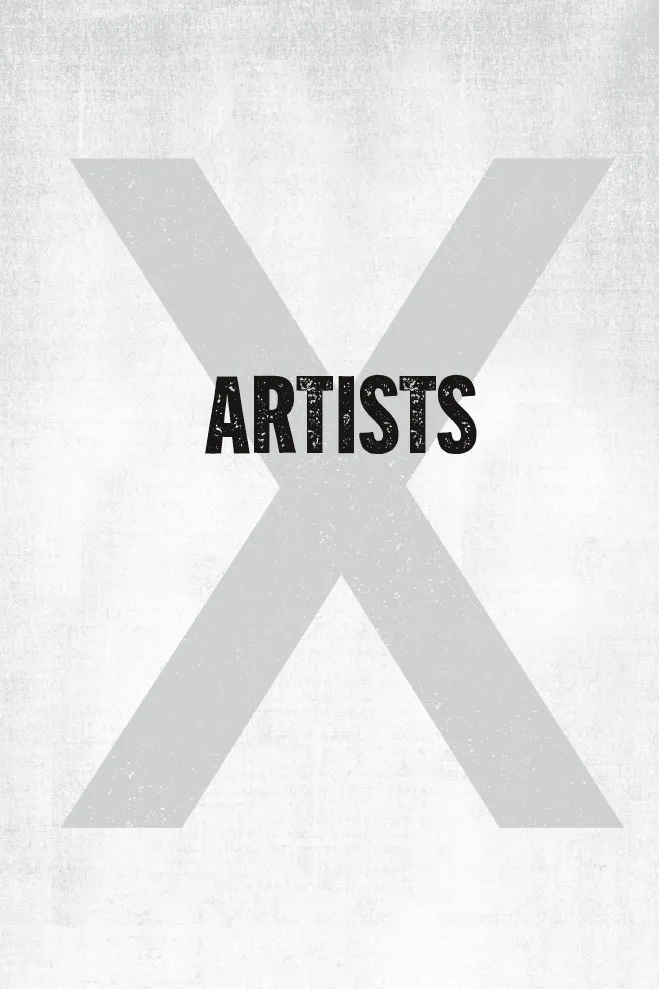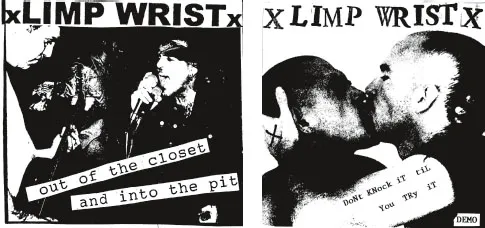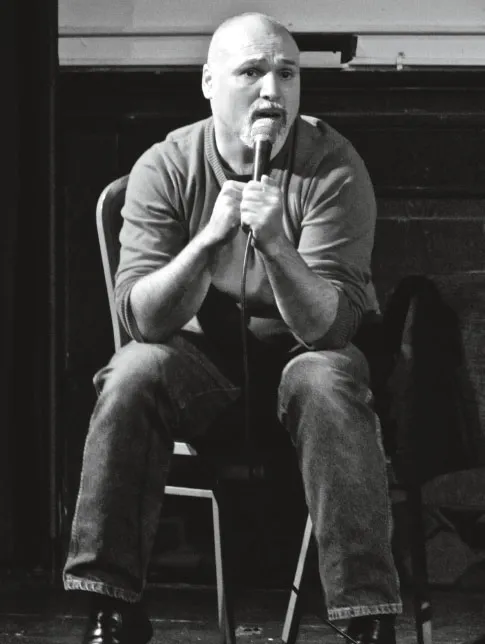![]()
“WE ARE EVERYWHERE”
Interview with Martin Sorrondeguy
Martin Sorrondeguy is a legendary figure in the US hardcore scene, best known as the singer for the bands Los Crudos and Limp Wrist. He runs the record label Lengua Armada Discos and directed the film Beyond the Screams: A US Latino Hardcore Punk Documentary (1999). For his photography visit martinsorrondeguy.com. The following interview was published on August 21, 2010, by DIY Conspiracy (diyconspiracy.net).
Let’s start with an introduction to you. Who are you? How old are you? You were born in Uruguay, but located to the USA in an early age. How did you grown up as a latino-kid and what brought you to hardcore/punk?
My name is Martin Sorrondeguy. I am 42 years old. I was born in Uruguay and was raised in the US. I came into hardcore punk when I was a teenager. I wanted something different than what was existing in my area at the time. We have many gang and violence problems there and I did not want to be a part of that. I needed something different, and punk was new and interesting for me and it provided options for an alternative life.
How did you come up to form the band Los Crudos and become involved in the DIY scene?
DIY ethics came to me before I was in Los Crudos. I had learned through DIY that there were always ways to having things happen that were outside the limits of what mainstream culture presented to me. Los Crudos was able to really make out impact due to a strengthened DIY belief system and methodology.
What brought you to the radical politics expressed by the band?
Our lives that we were living, our history as immigrants into the US and the circumstances we were faced with, led us to take a radically political stance. It was more of a necessity in order to survive and keep our sanity.
Can you give us a brief history of Los Crudos and the other activities and projects that you were involved in during the band’s existence?
Crudos began in 1991 on the Southside of Chicago. We sang all our songs in Spanish as a means to communicate with other Latino immigrants about our frustrations with the way Immigrant populations were being treated in the US. We took our message and involved ourselves with punk as well as nonpunk people, artists, activists and social workers within our community. We had built alliances with many people and we did benefit gigs, records, and involved ourselves in meetings as well as actions to make change.
It seems the main purpose of Los Crudos was to unify the Latino/Chicano punk community and expose the message of anarchism, immigrant rights and anti-racism to these poor Latino neighbourhoods in Spanish language. What was the reason to broke up with Los Crudos and are you satisfied with what you have achieved with the band during all those years together?
We really spread our message to many types of communities not just poor Latino communities. The impact that Crudos made went noticed because we spread ourselves out to even wealthier white communities as well. If we had stayed only in poor Latino communities Crudos and our activities would most likely not have been known. We stopped because it became too much about the band and music. It seemed that we were being pressured to play gig after gig and tour again and again, and it seemed that we were being cornered in a way that if we committed ourselves to gigging only we would lose our impact message wise, so we decided to stop the band.
After Los Crudos you started the band Limp Wrist and exposed your sexuality. Why did you become involved in the gay rights issues so late? Why not talking about being gay when you were in Crudos? And what’s the story behind starting Limp Wrist, was this a serious project in the beginning?
Actually, I was talking about being gay when Los Crudos were playing, it was when I first “came out” due to the conservativism within the many communities I felt it was important to talk about these issues. So I did. There were two songs on the Crudos LP that address the issues of love and sexuality.
Limp Wrist was always serious but we chose to take a humorous angle to make our point instead of an angry approach which was successful in the US.
Covers for the first self-released Limp Wrist tapes, Out of the Closet and Into the Pit (1999) and Don’t Knock It Till You Try It (2000). The Out of the Closet cover is taken from terminalescape.blogspot.com, where it is described as “an impromptu cover of sorts.”
I guess there were a lot of troubles when you have started Limp Wrist, because the lyrics and live shows of the band can be easily seen as extremely provocative with all that nudeness, homoeroticism and making fun of all the gay clichés. What was harder for you, to spark the social awareness and talk about political ideas with Los Crudos or to threaten homophobia and be an all-gay hardcore band with Limp Wrist?
All of the above were challenges, and as an artist and activist one has to create strategies to making your voice and point heard. Both bands were vehicles to express many things and we wanted to be smart about what we did and steering away from just being confrontational. That is what is usually expected from people we have lived with confrontation and are accustomed to it, so doing something that does not engage aggressiveness is strategizing.
What’s the difference between the Queercore scene and the political DIY scene? Is the queer scene open to the different social ideas and things like supporting the immigrants and minorities, being involved in social movements, animal rights etc., or it’s mainly single-issue oriented on identity politics and only few people are aware of other things except being gay?
It is very difficult if we begin to speak in terms of whole groups of people. So with any group of people you have a lot of overlap into differences because we are not flat human beings we all have differences. So when speaking about a gay person who then is also an immigrant or from a Third World nation or if you are a gay person that is poor as opposed to the stereotype of having money. Or if you are transgendered it gets more complicated/interesting. There are folks who juggle all of these dimensions of their lives so in punk queercore is an identity and it comes with expectations and a consciousness/awareness. So you cannot identify as queercore and not have a greater scope of the world around you, in fact, being queercore or a gay/lesbian/queer/trans punk has opened up expanded dialogue and actions to make real equitable change in the scene and in the world.
Some people recognize gays only as middle or upper class privileged people, who spend all of their free time in gay bars and clubs. What is it like to be immigrant, gay, working class and living in a poor Latino neighborhood?
This is what I was getting at above, you do have the mainstream gay world which can be what you described above and it is what gets media attention. Gay is not an umbrella group that we all fit under it is impossible to flatly define, so when people can embrace that being gay transcends the economic and social boundaries that we are used to see, we can begin to understand that the possibility of having someone who is gay living next door to us or within our own families is very real and it is happening, this goes for any community Latino/White/African-American/Asian etc., etc.
As it seems gay bars and clubs are the most recognized places where gay people could meet other gay people and socialize. But these are also places where they spend a lot of money on alcohol and drugs. What’s your opinion on this as Straight Edge person? Do you think alcohol, drugs and AIDS are a big problem in the mainstream gay communities and is there a way to stop this? What was your reason to become Straight Edge?
I no longer want to call myself Straight Edge as of two years ago. I was calling myself Straight Edge though when I first went to gay bars 15 years ago and I was comfortable with being Straight Edge it was part of who I was and I did not feel I had to surrender that in order to gain acceptance from gays who frequented bars. Gay bars in most cities are places where we can be social and meet one another but there are other places to meet as well, now there is the internet and one no longer has to go to a bar to meet other gay folks. The issues of gays and money is a very mainstream look at the gay world, there are many gays who do not have a lot of money so if you have I suppose you spend if you don’t have money spending is not an option.
You told me about your work as a high-school teacher. What do you think of the educational system in the USA and don’t you have troubles with the school-board or angry parents, who don’t want the teacher of their children to be gay? Are you talking with your students about LGBT rights, homophobia or historical events like the Stonewall riots?
I am an art/photo teacher so this is my focus of teaching at times current events and social issues come up in discussions during class, I think my job is to make sure the discussion is healthy and a true dialogue not one that comes from anger and intimidation, most students are able to have these discussions in this manner. I do not walk into a class room and say “Hi, I am Martin and I am gay”, I have never heard of a teacher doing this. There are students that are gay or lesbian and sometimes they can tell when a teacher is gay or lesbian but it depends on the context if that issue comes up and how it is dealt with. I once taught in an alternative high school where I was asked to teach a queer history class and it was great. This was an alternative school that was small about 40 students and a place where students were tired of being lied to and as a teacher I could be honest and prepare these students for real world experiences not hide things from them in hopes of them never having to be exposed to anything. Sort of strange but that is how fear of the unknown begins and many conservative approaches do this.
What’s some other stuff that people should know about the history of gay rights movement except Stonewall?
There is so much, I think having an awareness of many great works and activities created by gay/lesbian/bi/trans people is important. Queers did not just riot, we are in medicine/arts/politics etc. We are everywhere!
I guess here in Bulgaria no one is familiar with the history of the queer punk scene. So can you give us some information about the first and about the most important bands with gay members or people unframing the issue in the hardcore/punk scene? In the song “The Ode” you’re singing about people like Gary Floyd and Randy Turner, who are they? Which are the most important gay bands today and which queer bands do you recommend to hear?
The earliest of US punk in particular had many many queer people involved and active in the scene. The more known people were Darby Crash of the Germs, Tomata Du Plenty of the Screamers, Bob Mould from Hüsker Dü, Gary Floyd is the singer of the Dicks, Randy Turner is the singer of the Big Boys. There were also many many old punks who experimented with sexuality but may not have identified as gay. Some even prostituted themselves to men like Dee Dee Ramone. So whatever the reason sexuality was pretty fluid.
Martin Sorrondeguy at the University of Pennsylvania, 2015. Photo by David Ensminger.
What about the Latino hardcore/punk scene? You made the movie “Beyond The Screams: A Latino/Chicano Hardcore/Punk Documentary”, but it seems there’s a big difference since the time you did the movie? Bands like Los Crudos, Huasipungo, Youth Against are not active for years. What’s happening now?
In the Latino Punk scene there are tons of great bands and a strong scene of it, some of the bands are Ilegal from Montreal, Canada, Sin Orden is still happening, Tuberculosis, La Voz, Rayos X, Polizkitzo, Outraged, Ultratumbados, Venganza, Mugre, NN, Peligro Social, Ruleta Russa, and tons more there is some great stuff happening.
Tell us more about your bands and musical projects besides Los Crudos and Limp Wrist.
I have newer bands, one is a Spanish/Latino punk band called NN. I also have a total hardcore band called Needles, I am also still running Lengua Armada Records and releasing many great bands that I think need support.
Bands like Bad Brains or … Vegan Reich … are well known for their negative views on homosexuality. What’s your opinion on these bands?
Everyone has had their opinions and they are entitled to them. As a kid I grew up listening to Bad Brains, and I loved their Positive Mental Attitude and that spoke to me and I lived it, it is a shame that H.R. did not.
Is there anything you want to add? Something important that you would like to impart, but I forgot to ask you about?
No, not really, I think there are truly great discussions that need to happen, I am willing to partake in these discussions whenever I can. I hope the folks in your scene can read this and have a newer understanding of what we have been doing. Thank you for the time and curiosity.
TOTAL LIBERATION
Interview with Eva “Genie” Hall
Eva “Genie” Hall is the former vocalist of Gather (2004–2007). From 2012 to 2018 she sang in Rats in the Wall. Today she is in a new straight edge band with some member...




